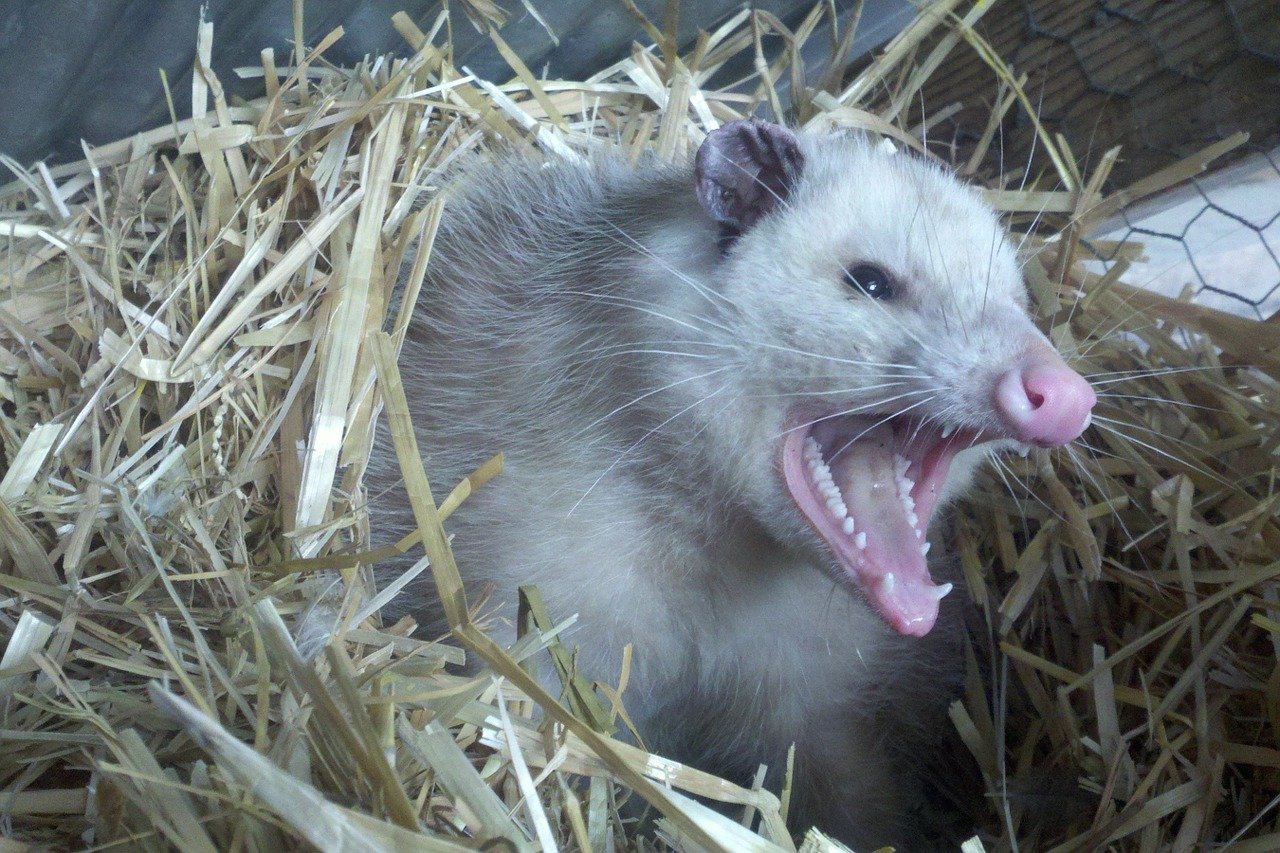Can Opossums Spread Disease To Humans?

Though opossums are unlikely to transmit rabies, they can occasionally carry harmful germs and pathogens that cause diseases like leptospirosis. This bacterial disease can be transmitted to humans and wildlife through contaminated urine or other bodily fluids from an infected animal. Animals such as raccoons, skunks, deer, squirrels, and rodents are all susceptible to leptospirosis.
Keep your distance from opossums at all times. It’s impossible to know what disease the animals have unless it has been lab-tested. If you need opossum removal, contact a wildlife professional that can safely relocate the animals.
Learn More: Possum Relocation FAQ
What Diseases Can An Opossum Carry?
Possums are affected by diseases, fleas, ticks, mites, and lice. Cat and dog fleas thrive in opossums, especially in urban areas. This opossum flea infestation is especially concerning for the transmission of flea-borne typhus.
Common diseases found in opossums include:
- Leptospirosis
- Chagas
- Relapsing Fever
- Tularemia
- Trichomoniasis
- Tuberculosis
- Toxoplasmosis
- Spotted Fever
- Coccidiosis
What Are The Signs Of A Sick Opossum?
While an opossum that appears healthy on the outside may be sick on the inside, there are some external signs to be aware of:
- Vomiting or diarrhea
- Loss of fur, patching, or balding
- Mouth foaming (also known as frothing)
- Erratic behavior
- Breathing problems
- Skin changes (such as discoloration, spots, or sores)
- Tumors or ulcers visible on the skin
What Should I Do If I Think An Opossum Is Sick?
First things first, do not approach the animal. If there are clear signs that the animal is sick, you risk contracting diseases by going near the animal. Call Animals Happen right away to have a wildlife technician dispatched to your property. An opossum control professional will be able to safely remove the animal from the property and decontaminate any infested areas.
